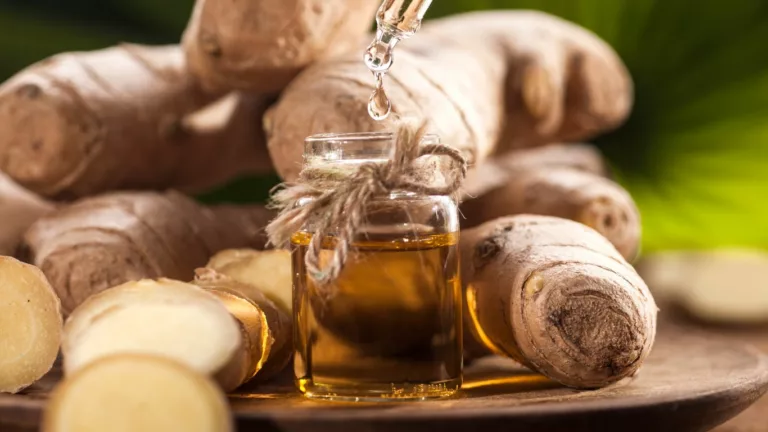Probiotics for Acid Reflux: How They Help, Expert Insights & the Truth About Cures
When I first started having recurring heartburn, I assumed it was just something I’d eaten—until it kept happening almost every day. Like many, I went down the rabbit hole of antacids, food restrictions, and late-night Google searches. That’s when I stumbled across probiotics. Could something as simple as gut-friendly bacteria really help ease acid reflux? Let’s break it down without the fluff.
Understanding Probiotics: More Than Just “Good Bacteria”

Probiotics are live microorganisms—mainly bacteria and yeasts—that support a healthy balance in your digestive system. They’re commonly found in fermented foods like yogurt, kefir, kimchi, and sauerkraut, as well as in supplement form. While often associated with general gut health, their role in managing acid reflux is gaining traction.
According to Mayo Clinic, probiotics may aid digestion and help protect against harmful bacteria, which could be especially useful for those dealing with gastrointestinal issues like GERD (gastroesophageal reflux disease).
How Probiotics Interact With Acid Reflux

1. Balancing Gut Microbiota
Your digestive tract is home to trillions of microorganisms. When this microbial community gets out of balance—often due to antibiotics, stress, or poor diet—it can lead to increased bloating, indigestion, and acid reflux symptoms. Probiotics help restore that balance, promoting smoother digestion and less gas, which can reduce pressure on the stomach and esophagus.
2. Improving Esophageal Function
Research suggests that certain probiotic strains may help regulate the lower esophageal sphincter (LES)—the valve that separates the stomach from the esophagus. A weak LES is a major factor in acid reflux. While the data is still emerging, some strains have shown promise in improving muscle tone and reducing reflux episodes.
3. Calming Inflammation
GERD is more than just acid—chronic inflammation plays a huge role. Probiotics can modulate the immune response and reduce pro-inflammatory markers in the gut. This might explain why some people notice fewer reflux symptoms and less esophageal irritation after regular probiotic use.
What the Experts Say About Probiotics for GERD

In a recent review of clinical studies, gastrointestinal health specialist Dr. Linnea C., MD, noted that while probiotics are not a cure-all, “patients with GERD who incorporate specific strains like Lactobacillus reuteri or Bifidobacterium bifidum often report improved digestion and reduced reflux flare-ups.” However, she cautioned that these results are strain-specific and vary greatly from person to person.
A 2020 study in the journal Microorganisms also reported that probiotics could help reduce Helicobacter pylori infection—a bacteria linked to acid overproduction and reflux. Though not a direct fix, reducing this underlying factor can make a noticeable difference.
Can Probiotics Cure Acid Reflux? Clearing the Misconceptions

Let’s address the elephant in the room—are probiotics a cure for acid reflux? The honest answer is no. There’s currently no clinical evidence supporting the idea that probiotics can permanently cure GERD or chronic acid reflux.
However, they can be a helpful part of your management plan. Like managing GERD through lifestyle changes, adding probiotics might reduce symptom frequency and severity, especially when combined with a reflux-safe diet and proper timing of meals.
Think of it this way: probiotics are like tuning your gut’s ecosystem. They won’t rebuild the entire engine, but they sure help it run smoother.
Tips for Choosing the Right Probiotic for Acid Reflux

Look for Science-Backed Strains
- Lactobacillus reuteri: Known for anti-inflammatory effects and gut motility support
- Bifidobacterium infantis: Promotes healthy digestion and reduces bloating
- Saccharomyces boulardii: A probiotic yeast that helps regulate bowel movements and immune balance
Skip the Sugar-Loaded Yogurt
Not all probiotic sources are equal. While yogurt is often promoted, many store-bought brands are packed with sugar—which can actually aggravate reflux symptoms. Look for unsweetened, low-fat options or go for capsules with enteric coatings that protect the bacteria through stomach acid.
Watch for FODMAP Sensitivities
Some probiotic-rich foods like kefir or kombucha might worsen symptoms in people with FODMAP intolerance. If that’s you, try a FODMAP-friendly supplement instead. Everyone’s gut reacts differently—pay attention to how your body responds.
Quick FAQs: Clearing Up Your Probiotic + Reflux Questions

- Can probiotics worsen acid reflux?
Rarely, yes. Some people may experience temporary bloating or gassiness when starting probiotics. This usually resolves within a few days. - What is the best probiotic strain for GERD?
There’s no one-size-fits-all, but L. reuteri and B. bifidum are frequently used in GERD studies with positive results. - Should I take probiotics on an empty stomach?
Ideally, take them just before or with a meal to maximize survivability through stomach acid.
If you’re just beginning your journey with reflux management, this guide can serve as a practical starting point. For a broader view on diet’s role in managing symptoms, check out our full GERD Diet Plan.
Probiotic Foods vs. Supplements: What’s Better for Acid Reflux?

I’ll be honest—I used to think eating a bunch of yogurt would magically fix my reflux. Spoiler alert: it didn’t. That’s when I learned there’s a big difference between food-based probiotics and supplements, especially when it comes to managing digestive conditions like GERD.
Food-Based Probiotics: Gentle, But Inconsistent
Fermented foods like kimchi, sauerkraut, miso, and kefir are excellent for general gut health. But for reflux, the story’s a little more complicated. Some of these foods are acidic, spicy, or carbonated—potential reflux triggers.
- Kefir: Great for digestion, but may irritate sensitive stomachs due to lactic acid content
- Yogurt: A popular go-to, but added sugars can worsen symptoms
- Sauerkraut: Probiotic-rich but often too acidic for GERD sufferers
So, while these foods offer natural probiotics, they may not be reliable or safe for everyone with reflux—especially during flare-ups.
Probiotic Supplements: Targeted and Consistent
If you want something with clinical backing and consistent dosage, supplements are the way to go. They often contain specific strains backed by research and are free of triggers like sugar, carbonation, or acidity.
One useful tip: look for supplements with a delayed-release or enteric coating. These protect the bacteria from stomach acid, allowing more of them to reach the intestines where they’re needed.
You might find it helpful to check out this breakdown of GERD-safe supplements—a great resource when comparing options.
Probiotics and Acid Reflux Medications: Can You Combine Them?

This is one of the most common questions I get from readers and clients: “Can I take probiotics with my PPIs or H2 blockers?” The short answer is—yes, and you probably should.
Why It Matters
Proton pump inhibitors (PPIs) and H2 blockers reduce stomach acid, which helps manage symptoms—but they also alter the gut microbiome. This disruption can lead to bloating, diarrhea, and nutrient malabsorption.
Probiotics help counteract these effects by replenishing beneficial bacteria. One 2021 clinical review found that long-term PPI users had a lower diversity of gut flora, which probiotics helped restore.
Timing Tips
- Take your reflux medication first thing in the morning
- Wait at least 2–3 hours before taking probiotics
- Eat a small meal with your probiotic to improve absorption
As always, check with your healthcare provider—especially if you’re immunocompromised or taking multiple medications. But for most people, combining both can offer complementary benefits.
Is It Safe to Take Probiotics Daily?

Yes—for most individuals, daily probiotic use is not just safe but potentially beneficial. That said, your response will depend on the strain, dosage, and your body’s unique makeup.
How Long to See Results?
Be patient. While some people feel better in a few days, others might take several weeks to notice a change. When I started taking probiotics for reflux, I didn’t feel a big difference for almost three weeks. Then—bam—less bloating, fewer nighttime flare-ups, and smoother digestion overall.
When to Stop
If you experience worsening symptoms, it could be due to strain mismatch, poor-quality supplements, or an underlying sensitivity. In that case, pause and reassess. Not all probiotics are created equal, and not every gut welcomes them the same way.
Probiotics During Pregnancy: Reflux Relief or Risk?

Acid reflux is incredibly common during pregnancy (I still remember sleeping half-upright with antacids nearby). Many expecting moms want natural solutions—and probiotics seem like a safe bet. But are they?
What Research Says
According to a 2022 meta-analysis, probiotics are generally safe during pregnancy and may help reduce digestive discomfort, constipation, and bloating. While not directly studied for reflux during pregnancy, improving overall gut function can still provide some relief.
Best Practice
- Choose pregnancy-safe strains (like Lactobacillus rhamnosus)
- Avoid supplements with unnecessary additives or herbs
- Talk to your OBGYN before starting any new supplement
Natural strategies are especially important during pregnancy. If you’re navigating heartburn while expecting, check out our guide to managing reflux during pregnancy.
Daily Dosage: How Much Is Too Much?

When it comes to probiotics, more isn’t always better. The key lies in choosing the right strain and dosage—not just popping the highest CFU count you can find.
Suggested Starting Point
- 5–10 billion CFUs per day is a safe starting range for GERD relief
- Increase only if recommended by your provider or tolerated well
- Start with a single strain to monitor how your body reacts
Also, avoid switching brands too frequently. Give each product a 2–3 week trial before deciding whether it works for you.
Probiotics Not Working? Here’s What to Do

Some folks try probiotics and feel… nothing. Or worse, they notice new issues like bloating or gas. Here’s what might be happening:
- You picked the wrong strain. Try one backed by evidence for reflux—like L. reuteri or B. infantis
- The dosage is too high (or too low). Some people are sensitive to higher CFUs, while others need a bump up to feel anything
- Timing is off. Taking it right after a heavy meal or on a totally empty stomach can affect results
- You’re not giving it enough time. It can take several weeks for changes in the microbiome to reflect symptom relief
If you’re curious about natural options beyond probiotics, check out our article on natural GERD remedies for more ideas that actually make a difference.
Best Probiotic Strains for GERD: What Science (and Experience) Recommends

Not all probiotics are created equal. After talking with digestive health experts, digging into studies, and testing a few options myself (yes, my medicine cabinet looks like a supplement aisle), here are the strains that consistently show promise for acid reflux sufferers:
Clinically Backed Strains
- Lactobacillus reuteri: Reduces gut inflammation and supports LES function
- Bifidobacterium infantis: Calms bloating and gas—two common triggers for reflux
- Lactobacillus rhamnosus GG: Supports immune response and gut barrier integrity
- Streptococcus thermophilus: Helps break down lactose and reduce acid buildup
These strains show the most promise when it comes to reducing GERD-related discomfort. But even the best probiotic won’t help if your lifestyle is working against you.
Combining Probiotics With GERD-Safe Eating Habits

Probiotics won’t undo the damage of late-night tacos and coffee overload. If you’re serious about managing reflux, you’ve got to stack the deck in your favor.
Simple Eating Habits That Complement Probiotics
- Eat smaller, more frequent meals: Large meals increase pressure on the stomach, pushing acid upward
- Avoid lying down for 2–3 hours after eating: Give gravity a chance to work with you, not against you
- Cut back on common triggers: Think spicy food, chocolate, citrus, mint, and fried stuff
- Pair probiotics with fiber: A fiber-rich diet supports probiotic activity in the gut
If you haven’t already, check out our complete guide on reflux-friendly foods. It’s one of the most practical resources we’ve published.
Mistakes to Avoid When Taking Probiotics for Reflux

Yes, there’s a wrong way to take probiotics. I’ve made most of these mistakes myself—and paid the price with bloating, burping, and zero improvement. Learn from my trial and error:
Top Errors
- Choosing the cheapest product: Often low-quality, with ineffective strains or dead cultures
- Inconsistent usage: Skipping doses ruins the cumulative effect on your microbiome
- Ignoring your body’s response: If a supplement gives you headaches, cramps, or nausea, stop and reassess
- Taking it with trigger foods: Downing a probiotic with coffee and orange juice defeats the purpose
Good gut health is a habit, not a hack. If you’re switching brands constantly, skipping days, or overloading on fermented food hoping for a miracle—you might just be spinning your wheels.
How to Build a Long-Term Probiotic Strategy for GERD

Once you’ve found a probiotic that works, the next challenge is consistency. That’s where most people drop the ball. Here’s a simple framework to help you build a sustainable routine.
Your Weekly Probiotic Checklist
- ✅ Choose one quality supplement and stick with it for at least 30 days
- ✅ Take it at the same time every day (with or after breakfast works best)
- ✅ Track symptoms in a gut health journal—bloating, heartburn, bathroom habits
- ✅ Reassess monthly and adjust dosage or strain as needed
If you need help staying accountable, consider joining a GERD support group or using a health tracker app. You’re not alone in this journey—even if it sometimes feels like you are.
GERD-Friendly Probiotic Foods Worth Trying

If supplements aren’t your thing, or you want to add diversity to your gut support routine, there are a few probiotic foods that can fit into a GERD-safe diet. But you’ll have to be selective.
Top Picks
- Unsweetened kefir (in small amounts): Choose lactose-free if dairy is a trigger
- Plain Greek yogurt: Avoid fruit-on-the-bottom types with added sugars
- Miso soup: Low-acid, soothing, and contains probiotics from fermented soybeans
- Tempeh: A fermented plant-based protein that’s gentle on digestion
Steer clear of kombucha (carbonation + acidity = reflux flare), kimchi, and other spicy fermented foods unless your stomach can genuinely handle them.
What Doctors Want You to Know About Probiotics and Acid Reflux

Here’s what gastroenterologists and nutrition experts consistently stress:
- Probiotics are not a substitute for reflux medication—but they can work alongside it
- They’re not a magic bullet. Improvements are often subtle and gradual, not overnight
- Strain matters more than CFU count. It’s not about “more is better,” but about “right strain for the right issue”
- Talk to your doctor if you have immune issues, are pregnant, or take long-term meds
It’s also worth remembering that gut health isn’t just about what you take—it’s about how you live. Movement, sleep, hydration, and stress reduction all play a part.
Final Word: Should You Try Probiotics for Acid Reflux?

If you’re someone who’s tried antacids, diet changes, and still struggles with reflux—adding the right probiotic could be a game-changer. It won’t replace medication, but it may support digestion, reduce inflammation, and make your gut a lot more resilient to triggers.
For me, it was about stacking small wins: eating earlier dinners, managing stress, walking after meals—and yes, taking a daily probiotic. And while it’s not always perfect, I now get through most days without that awful burning in my chest. That alone? Worth it.
To expand your understanding of GERD beyond gut health, explore our guide to GERD symptoms and how to spot early warning signs before they escalate.

Camellia Wulansari is a dedicated Medical Assistant at a local clinic and a passionate health writer at Healthusias.com. With years of hands-on experience in patient care and a deep interest in preventive medicine, she bridges the gap between clinical knowledge and accessible health information. Camellia specializes in writing about digestive health, chronic conditions like GERD and hypertension, respiratory issues, and autoimmune diseases, aiming to empower readers with practical, easy-to-understand insights. When she’s not assisting patients or writing, you’ll find her enjoying quiet mornings with coffee and a medical journal in hand—or jamming to her favorite metal band, Lamb of God.







